The educational materials listed on this page are about Agroforestry.
What is a practical agroforestry definition? How do you define agroforestry? What is agroforestry? These are common questions from farmers seeking to diversify their operations. The definition of agroforestry contains several pieces that are integral to the success of this type of farming. Agroforestry is an alternative farming system that integrates trees and shrubs with crops or livestock. An agroforestry system can create more diverse farms, ranches and communities. Different types of agroforestry can help farmers diversify both their farm products and their business income. An example of agroforestry practices is the practice of using trees that produce an annual fruit or nut crop but can also be grown for a future timber harvest. These are just a few of the benefits of agroforestry as a farming enterprise. Key practices include agroforestry, permaculture, integrated crop and livestock systems, new enterprise development, fruit, nuts, forest management, windbreaks, alley cropping, forest farming, silvopasture.
The Agroforestry brief sheet provides information for farmers looking to diversity their products and income. SARE’s book Building a Sustainable Business can aid producers in building a sustainable and profitable business plan for their new enterprise. For help with identifying funding for agroforestry ventures, Building Sustainable Farms, Ranches and Communities gives producers alternative ways to get their business up and running through innovative funding opportunities. Diversifying Cropping Systems is a bulletin that can be useful in identifying practices that enhance diversity on farms, including forest management practices.
Showing 1-5 of 5 results
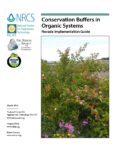
Conservation Buffers in Organic Systems: Nevada
This is a collaborative project to build the capacity of conservation professionals to assist organic and transitional farmers in planning and implementing conservation practices through the Environmental Quality Incentives Program Organic Initiative. This guide is part of a series of guides created by Oregon Tilth for use by NRCS staff in the Western Region. Conservation Buffers provides […]
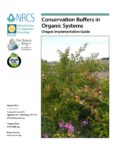
Conservation Buffers in Organic Systems: Oregon
This is a collaborative project to build the capacity of conservation professionals to assist organic and transitional farmers in planning and implementing conservation practices through the Environmental Quality Incentives Program Organic Initiative. This guide is part of a series of guides created by Oregon Tilth for use by NRCS staff in the Western Region. Conservation Buffers provides […]
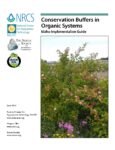
Conservation Buffers in Organic Systems: Idaho
Conservation Buffers provides guidance on installing buffers in organic production systems to meet the USDA National Organic Program NOP regulations.
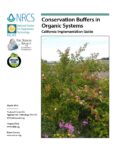
Conservation Buffers in Organic Systems: California
This is a collaborative project to build the capacity of conservation professionals to assist organic and transitional farmers in planning and implementing conservation practices through the Environmental Quality Incentives Program Organic Initiative. This guide is part of a series of guides created by Oregon Tilth for use by NRCS staff in the Western Region. Conservation Buffers provides […]
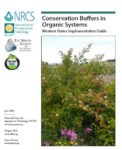
Conservation Buffers in Organic Systems: Western States Implementation Guide
Conservation Buffers provides guidance on installing buffers in organic production systems to meet the USDA National Organic Program NOP regulations.